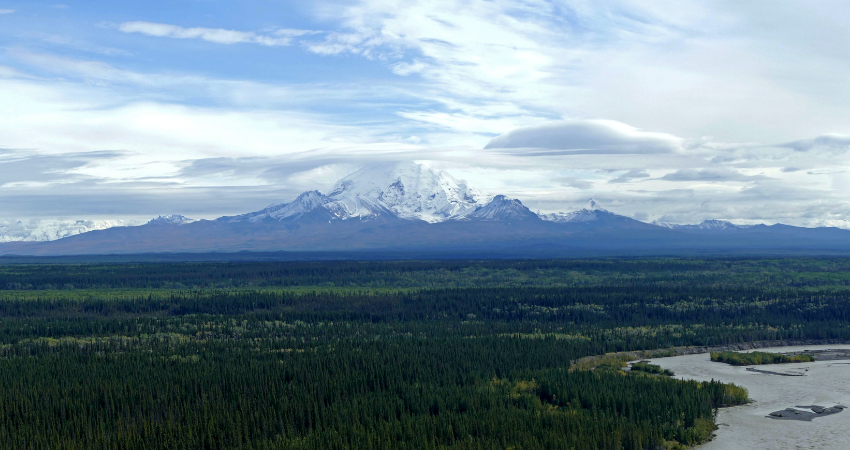Leadership posts

How Being in Nature Can Spur Personal Growth (Greater Good Science Center)
Posted by Laurie J Cameron
We know the benefits of being in nature - increased well-being, creativity, and attention. Recent studies suggest that being intentional in your visits with nature could reap even greater rewards. The goal is to connect with nature in more complex ways - to elicit wonder and awe and recognize something bigger than ourselves. When you take the focus off of yourself, you become happier and more willing to help others.
--
You might enjoy skiing or hiking. But do you feel at home in the mountains? Do you feel connected to the wilderness? According to a new study, that sense of being “home” in nature could be linked to your life satisfaction and personal growth, at least for young people. Another new study of older people finds that a connection to nature seems to make them happier and more willing to help others.
In the first study, a team of researchers in Norway followed a group of college students who were training to lead wilderness expeditions in one of two settings: either in a forest in the middle of a storm or across a high-altitude plateau. The students agreed to complete a pre- and post-adventure questionnaire, which assessed their life satisfaction and personal growth.
A portion of these students also answered prompts every evening of their five-day excursion. They were asked to describe a strong experience with nature that day, trying to capture how it made them feel. The researchers divided emotional states into “hedonic” feelings—that is, ones of pleasure and enjoyment—as well as “eudaimonic” feelings—those of engagement and purpose.
Then, they answered questions probing eight “aesthetic” aspects of the experience:
I experienced beautiful scenery
I was aware of small details in nature
I appreciated variety in nature
I felt everything was connected in nature
I felt at home in nature
I felt nature evokes wonder
I felt beauty in nature evoked wonder
I felt nature evoked awe and respect
In analyzing their responses, the researchers found that people who felt at home in nature had higher life satisfaction and personal growth. This feeling was also the most emotional aspect of the nature experience—but the results varied depending on the setting of the natural experience. In the cold plateau environment, people who felt at home in nature showed the most satisfaction and growth—and also both hedonic and eudaimonic feelings. In the stormy mountain environment, those at home in nature reported a sense of growth, but not satisfaction with their lives, and only hedonic feelings.
The researchers attribute these differences to the fact that in the stormy forest setting, students had to work hard in order to stay warm and dry, explaining that “when they succeeded in this, they felt connected to nature, which is a hedonic feeling.” The experience was broader for the students on the plateau: In addition to keeping warm and dry, they skied for long distances. The physical exertion and distance covered allowed them to feel “connected to nature in more complex ways, both hedonic and eudaimonic.”
What aspect of their experiences made students feel at home in nature? By examining their daily experience narratives, researchers found that “wonder” was key to feeling at home in wilderness. Wonder can be understood in two dimensions: a feeling of surprise and fascination evoked by an element of nature, and a feeling evoking reflection on what we perceive, motivating a further search for insight. Many of the students who felt at home in nature cited at least one of these dimensions in their experience narratives.
Those results were reinforced by a new study from two University of California campuses of the impact of “awe walks” on 60 older adults. Participants, aged 60-90, were asked to take a weekly 15-minute outdoor walk. Half were asked to “orient their walks to experience awe”; the other half were given no special instructions. Researchers also asked them to take a photo of themselves on this walk every week.
The researchers found that the participants who went on these awe walks expressed greater feelings of social connection and positive emotions compared to their normal walking peers. In their selfies, the awe walkers also included themselves less and less in the photo, which the researchers interpreted as a sense that the self was just one small part of a bigger picture. Awe walkers even displayed a greater smile intensity in the photos over the span of the eight weeks.
Together, these outcomes suggest that when people are primed to experience awe, they feel simultaneously smaller and better. In taking the focus off of themselves, they seem to get happier—and they express a greater willingness to help others.
While we know that spending time in nature can boost our well-being in multiple ways, such as by increasing our creativity, attention, and generosity, these studies offer insight as to what dimension of our outdoor experience actually causes the benefits we reap, how wonder plays a role, and whether our feeling is rooted in passing feelings of pleasure or deeper ones of fulfillment and connection. These results suggest that it is worthwhile to challenge ourselves in nature, from a simple walk to an outdoor activity we haven’t done before. If we can provoke a feeling of wonder within ourselves, then we’re on the right path
Continue reading the original article written by Teja PattaBhiraman published on Greater Good Science Center.